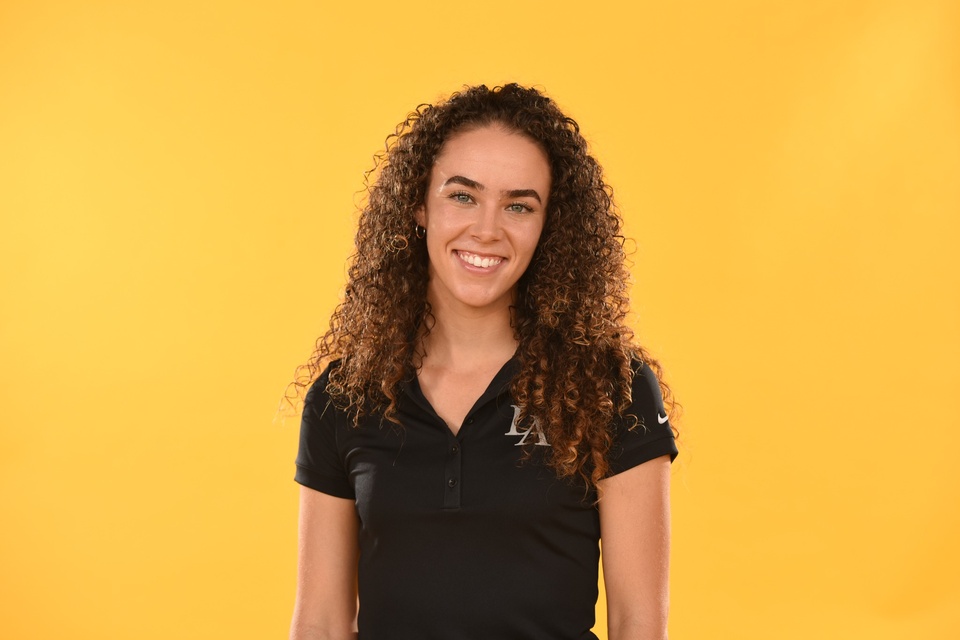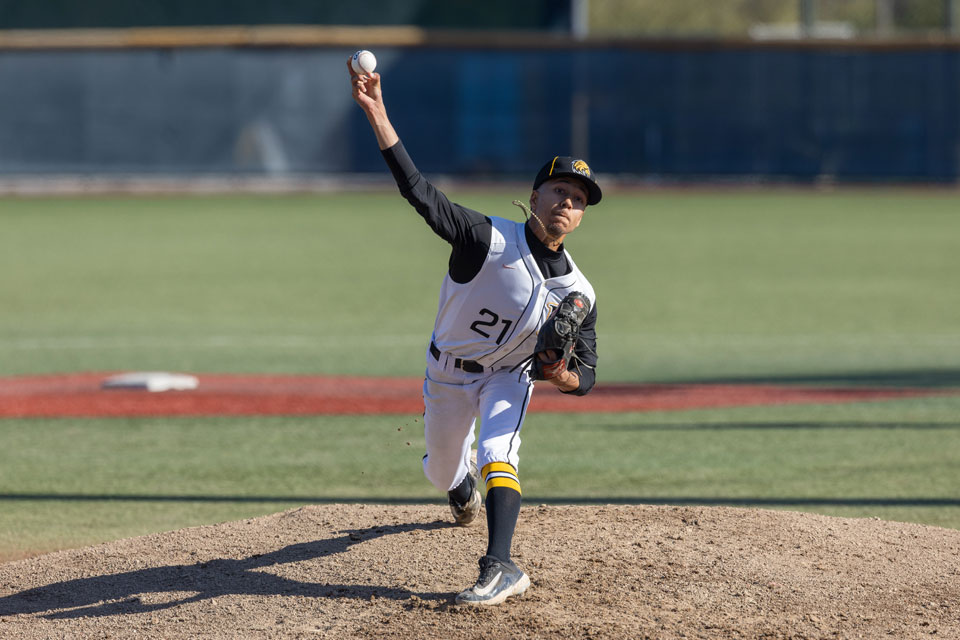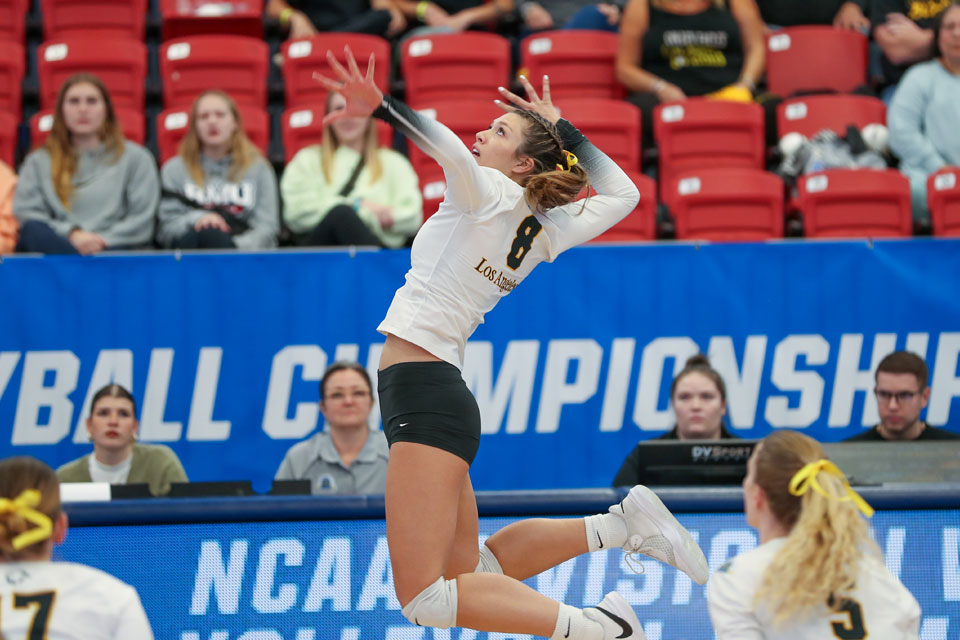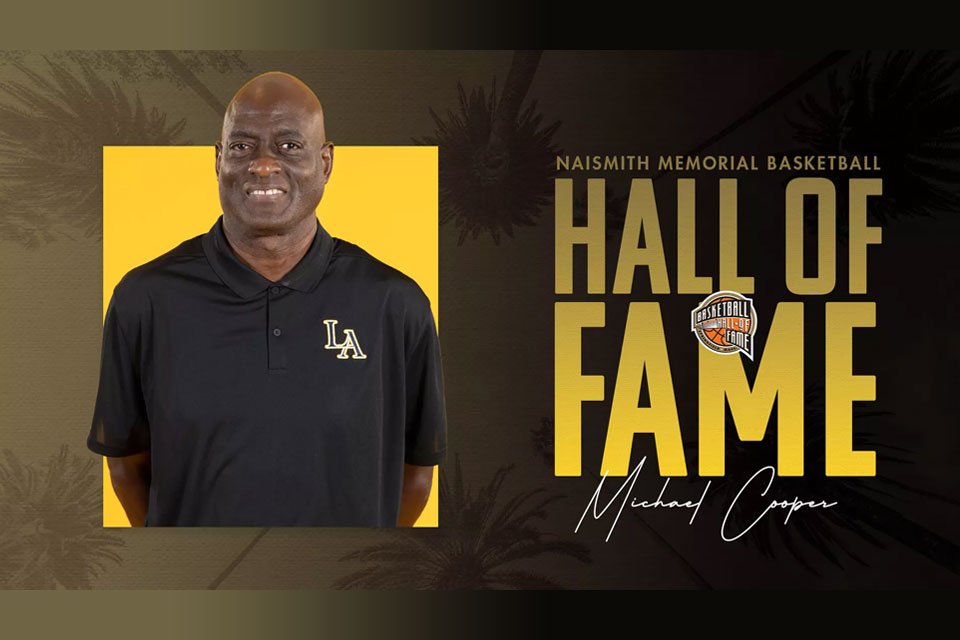The players on Cal State LA women’s basketball team are required to drop dimes. The kinds of assists that are expected of them are not on the court, but in the neighborhoods that Cal State LA serves, where the players have become visible custodians of the community.
On any given weekend, the team can be found out and about in the greater Los Angeles area providing volunteer work that positively impacts the community.
“There’s a debt to pay to society,” said Torino Johnson, head coach of the women’s basketball team. “The community service is like a field trip. You’re getting the lowdown, getting to know the people that you serve. Wherever there’s a need, we want to be the face that shows up. We don’t want to sit idly by as homelessness skyrockets or as the opioid crisis worsens. We try to get out front and say, ‘Hey, we’re here, you can count on us.’”
The Golden Eagles have painted the exterior of an El Sereno home through Habitat for Humanity, collected trash off the streets of Koreatown in collaboration with the Koreatown Youth and Community Center, assembled care packages with the Los Angeles Regional Food Bank, served food to the unhoused through the Los Angeles Mission, shared stories with children through Reading to Kids grassroots organization, passed out water and provided other assistance at a number of charitable walks and races, and much more.
Johnson implemented the mandatory volunteer work when he took over the program six seasons ago as a way for his players—and assistant coaches—to take ownership of their community.
The players have embraced the idea.
“These are opportunities that are once in a lifetime,” said sophomore Sofia Fidelus. “Yes, it looks good on a resume, but more importantly it’s good for us. It feels good at the end of the day knowing you have given back.”
Said senior Lily Buggs, “I grew up doing quite a bit of volunteering. I like that it’s such a big part of (the basketball) program. We’re not only able to give back, but we do a wide variety of volunteer work that allows us to help out a lot of different people in a lot of different ways.”
The Golden Eagles participate in 10-15 volunteer opportunities every year, Johnson estimates. Their season of giving never ends.
It all starts in the fall, way before the players step foot on the hardwood to compete.
Junior Amaya Fuentes says that timeline allows the team to coalesce organically.
“We start the volunteer work before we really know each other,” she said. “We spend a lot of time together every weekend after already spending a lot of time together on weekdays. It’s our version of team bonding that we don’t necessarily have to plan. We just hang out with each other, and it’s all very natural.”
Fidelus, who grew up in Northern California, says the volunteer work has been instrumental in her acclimating to her new home.
“Being from the Bay Area, it’s so different from here,” she said. “There are two completely different cultures, and our coaches want us to immerse ourselves in the L.A. culture. I think the best way to get to know a place is to go in there and do the work.”
The volunteer efforts that stand out for Fidelus were the Koreatown cleanup last year when she was a freshman, and the Habitat for Humanity restoration project from earlier this school year. The latter was of particular interest since Fidelus is majoring in civil engineering.
“It was really fun,” she said. “I’ve always been interested in construction. I’m that person who likes to get her hands dirty. So, we were able to paint the house, do all the trimmings. When that house is fully refurbished, we’re going to be able to look at it and say, ‘We painted that. We did that for a family that was in need.’ That’s going to feel amazing.”
The Golden Eagles showed up for their 7:45 a.m. shift with plenty of enthusiasm, according to Makayla Rivera, volunteer coordinator with the San Gabriel Valley Habitat for Humanity. They were supposed to work until 3:30 p.m. but finished painting the home by noon.
“They did an amazing job,” Rivera said. “They basically finished the job in half the time that was allotted.”
The nonprofit works with families, local communities, volunteers, and partners to build and repair affordable homes. Its homeownership program allows low-income, first-time homebuyers to purchase newly built houses at no profit to Habitat for Humanity and through affordable loans. The future homeowners help build their home through sweat equity hours, but much of the construction is done by volunteers.
The San Gabriel Valley chapter has built or repaired more than 400 homes since its founding in 1990, according to its website.
“We’re able to do so much because we have such amazing volunteers who dedicate their time to help us save money, which allows us to pass along these homes at a much more affordable price,” Rivera said. “Having a large group of volunteers, like the one from Cal State LA, helps us be more efficient and finish these homes faster.”
Johnson’s relationship with Habitat for Humanity dates back more than a decade to his days as coach at Palisades Charter High School, which Johnson built into a state powerhouse. Even then his players were volunteering with the nonprofit.
A native Angeleno, Johnson says the volunteer ethic was instilled in him as a child when his mother would take him to various soup kitchens where they would provide service. He says he is lucky to have a staff that also believes in paying it forward, and now they are passing it down to their players.
“I don’t want them to think we’re just coaching them physically,” Johnson said. “From the neck up, we want to help them grow into thoughtful individuals who are aware that in Los Angeles, although COVID-19 is over, there are different levels of pandemics going on at all times.”
With back-to-back appearances in the NCAA Tournament for the first time in the program’s history, the past two seasons have been among the Golden Eagles’ most memorable. During his tenure, Johnson has turned the team into one of the top programs in the California Collegiate Athletic Association and the NCAA West Region.
The coach says the team strives to duplicate its success off the court.
“We are extremely competitive within the community service aspect,” Johnson said. “It’s a duality. We want to match what we do on the court. We try to be equally as good or better in the community.”
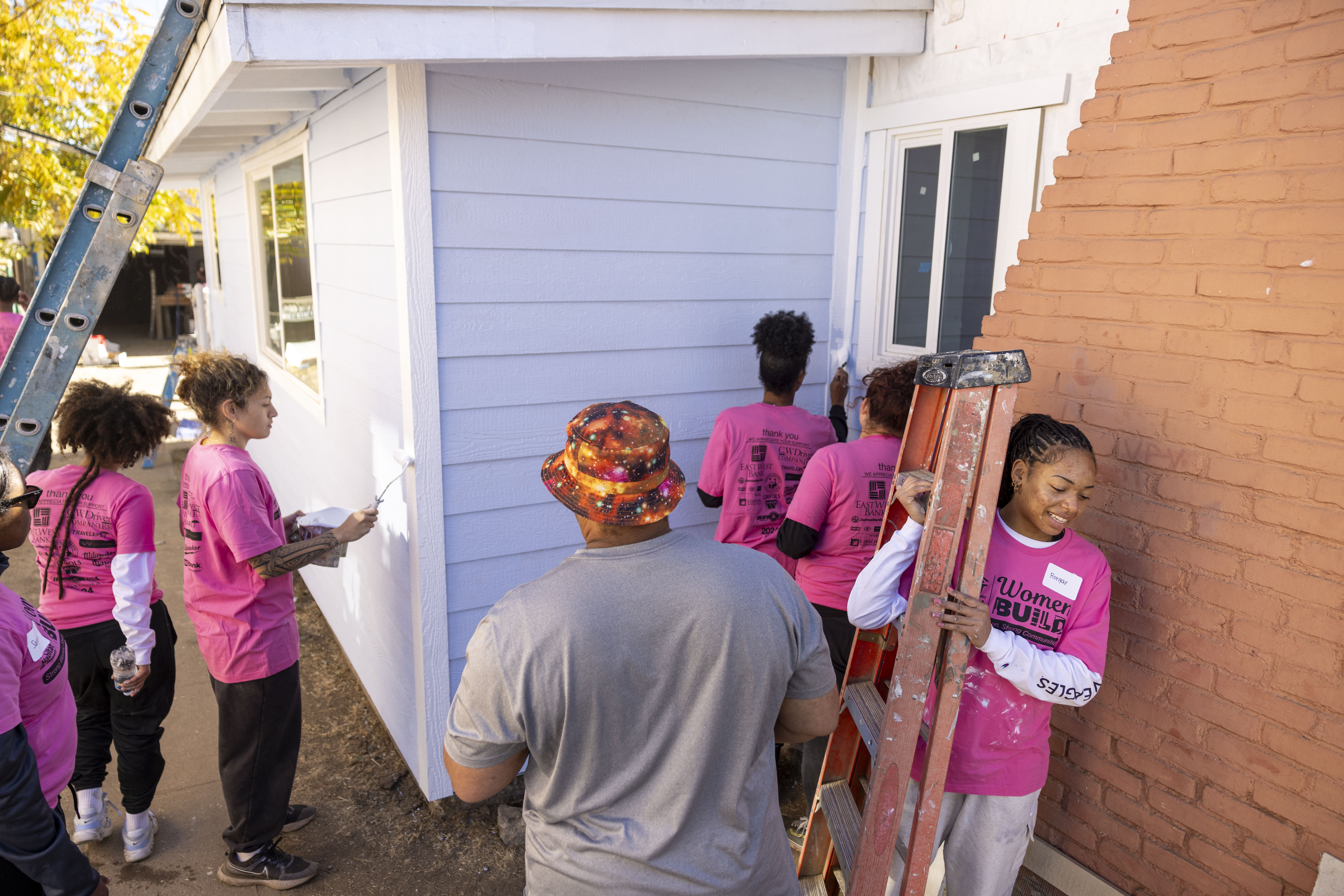
Photo: Members of the Cal State LA women’s basketball team help with the refurbishing of a Habit for Humanity home in El Sereno. (Credit: J. Emilio Flores/Cal State LA)
# # #
California State University, Los Angeles is the premier comprehensive public university in the heart of Los Angeles. Cal State LA is ranked number one in the United States for the upward mobility of its students. Cal State LA is dedicated to engagement, service, and the public good, offering nationally recognized programs in science, the arts, business, criminal justice, engineering, nursing, education, and the humanities. Founded in 1947, the University serves more than 24,000 students and has more than 250,000 distinguished alumni.


